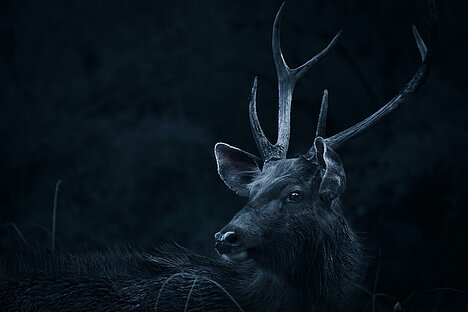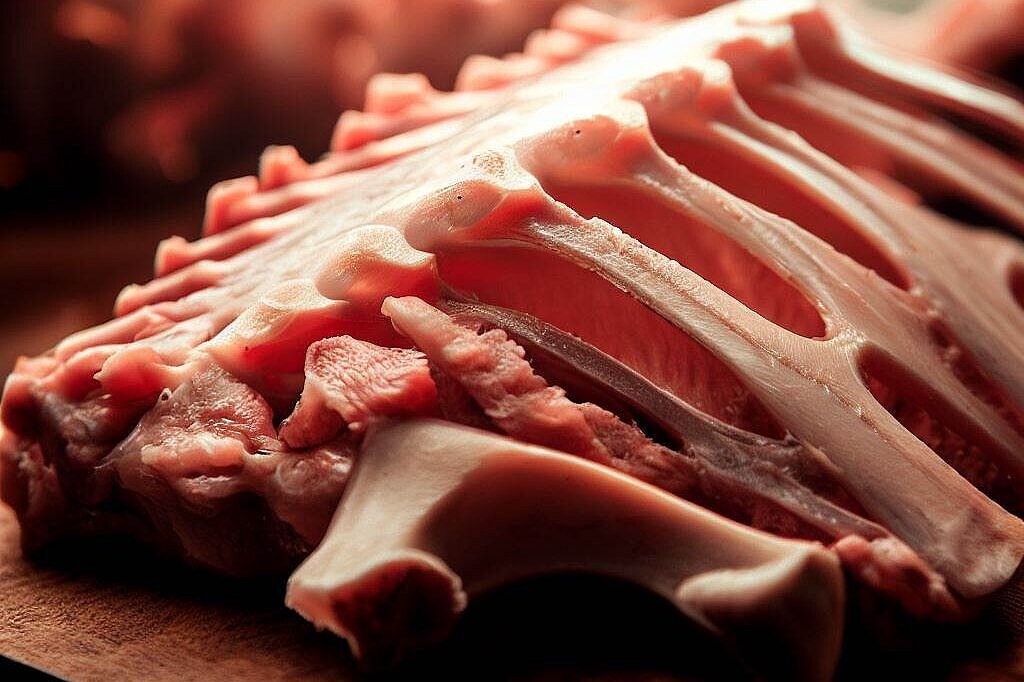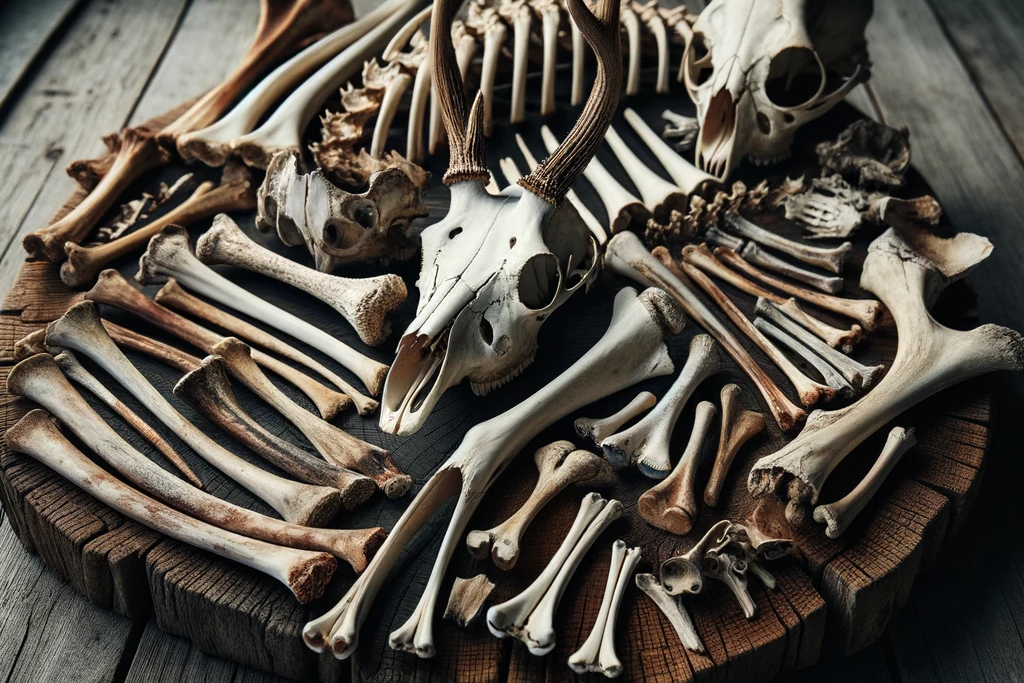Deer shoulder blades

You may have heard of deer shoulder blades as a chew for dogs and wonder if it's a good choice. In this article, you'll find out what deer shoulder blades are, what the advantages and disadvantages are and what you should look out for when giving them to your dog.
What are deer shoulder blades?
Deer shoulder blades are bones from the shoulder of deer. They are usually offered dried or smoked as a chew for dogs. Deer shoulder blades are relatively hard and can vary in size depending on the size of the animal. They are irregularly shaped and can have sharp edges.
What are the advantages of deer shoulder blades?
Deer shoulder leaves have several advantages as a chew for dogs:
- It is a natural snack that contains no artificial additives.
- It is hypoallergenic, i.e. also suitable for dogs with allergies or intolerances to other types of meat.
- It is low in fat and calories, which is good for your dog's figure.
- It promotes your dog's dental health by removing tartar and plaque and massaging the gums.
- It keeps your dog busy for a longer period of time and satisfies his natural urge to chew.
What are the disadvantages of deer shoulder blades?
Deer shoulder leaves also have some disadvantages as a chew for dogs:
- It can cause injury to your dog's mouth or digestive tract if he cuts himself on the sharp edges or swallows pieces that are too large.
- It can lead to an overdose of calcium or phosphorus if your dog eats too much of it. This can lead to kidney or joint problems.
- Infection with parasites or bacteria can occur if the venison has not been adequately treated or if your dog shares it with other animals.
- There may be an odor nuisance if your dog spreads the deer shoulder blade around the house or plays with it.
What should you bear in mind when giving your dog deer shoulder blade?
If you want to give your dog deer shoulder leaves as a chew, there are a few things you should bear in mind:
- Choose deer shoulder leaves that are suitable for your dog's size and age. Pieces that are too small can easily be swallowed, while pieces that are too large are too heavy or don't fit in the mouth.
- Only buy deer shoulder blades from trustworthy manufacturers or dealers who guarantee high quality. Pay attention to the country of origin, the best-before date and the organic seal.
- Check the venison shoulder blades for mold, cracks or other damage before eating. Discard it immediately if you notice anything unusual.
- Watch your dog chew and remove the deer shoulder blade if it becomes too small or shows signs of discomfort. Always give your dog fresh water.
- Do not give your dog more than one deer shoulder leaf per week and reduce the amount of his normal food accordingly. This will prevent overfeeding or nutrient imbalance.
Deer shoulder blades are dried or smoked bones from the shoulder of deer and are used as a chew for dogs. They have some advantages, such as natural composition, hypoallergenicity, dental care and activity, but also disadvantages, including the risk of injury and the possibility of calcium or phosphorus overdose. When feeding deer shoulder blades, the size and quality of the bones should be considered and dogs should be observed while chewing to prevent any problems. It is recommended not to give more than one deer shoulder blade per week and to adjust the amount fed accordingly.
If you notice any signs of hypersensitivity or poisoning in your dog, you should see your vet immediately. We are not a substitute for a vet, but we try to be as accurate as possible. Every dog reacts differently and we recommend you get a second opinion or consult your vet if in doubt.
Stay healthy and take good care of your four-legged friend!😊
Similar to Deer shoulder blades
The sternum bone is part of the skeleton of cattle, sheep and goats. It is a long, flat bone that is located in the center of the ribcage and connects the ribs together. The sternum is often...
Deer bones are the bones of deer that are a by-product of hunting or meat processing. They are usually dried or smoked to preserve them and improve the taste. There are different types of deer...
Not all bones are the same. There are different types of bones that vary in size, shape, hardness and composition. Depending on the type of bone you give your dog, this can have different effects on...
Wild bones are bones from animals that live in the wild and feed naturally. They are usually larger and harder than bones from farm animals such as cattle or pigs. They also contain less fat and...



